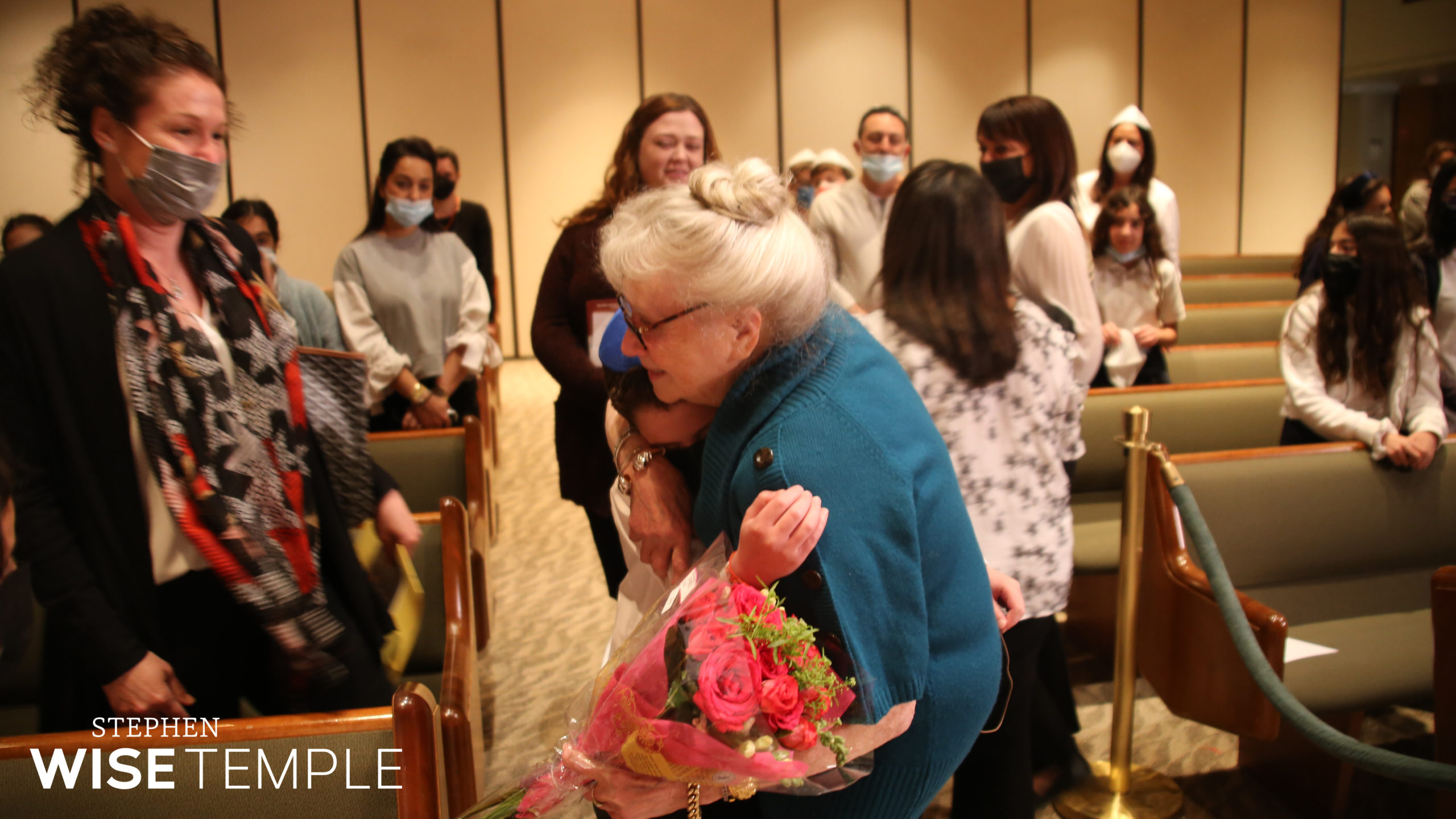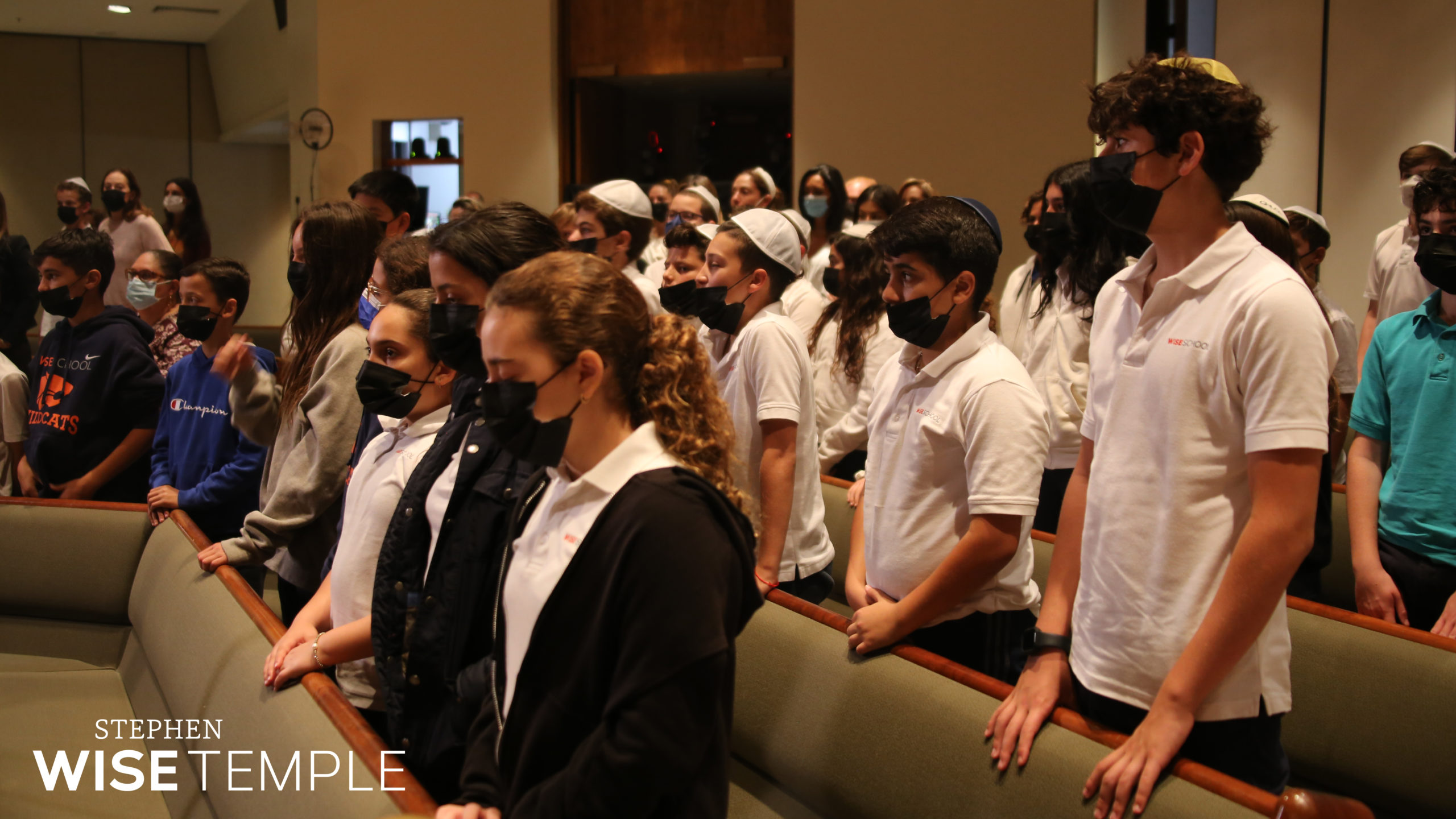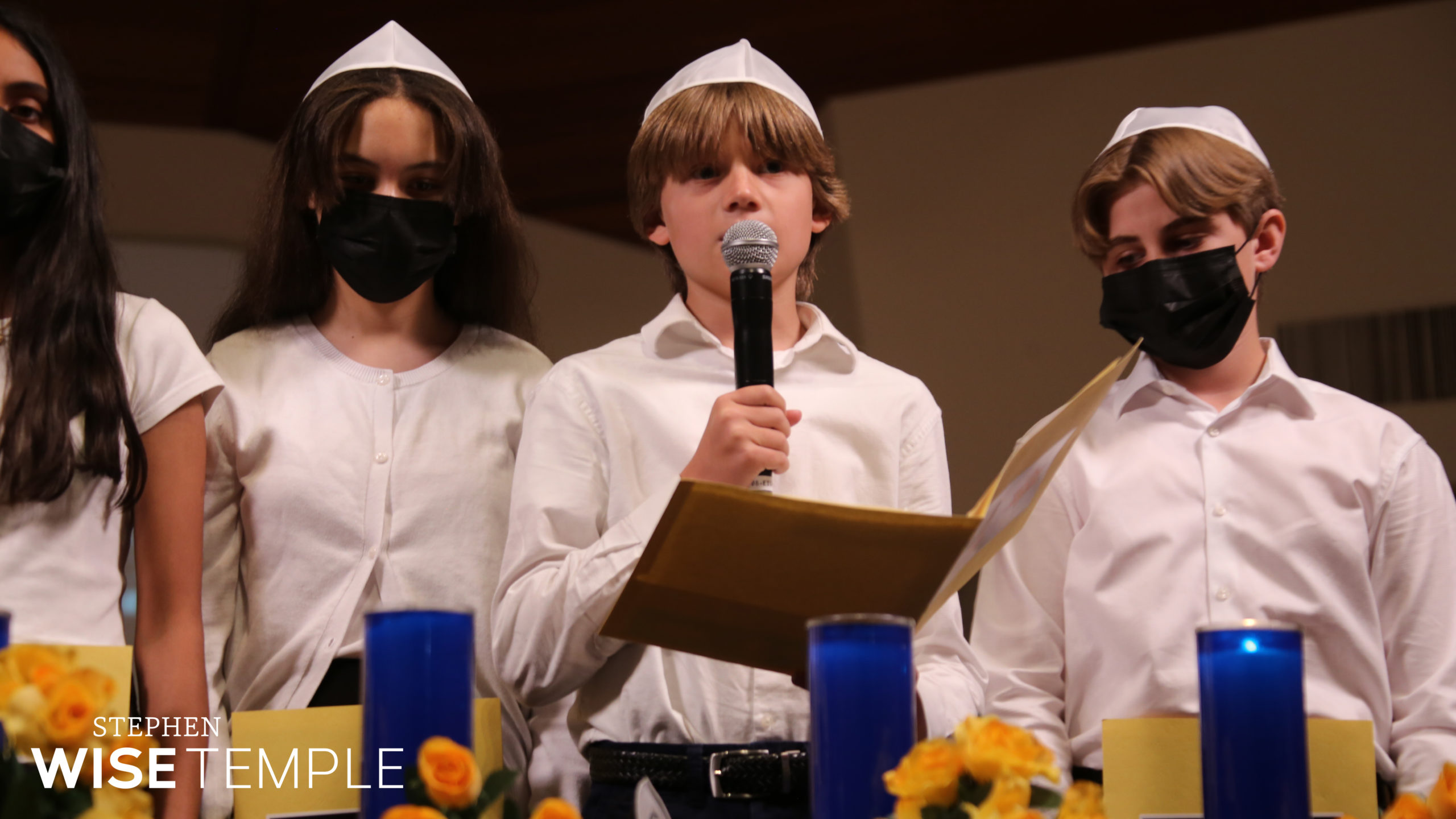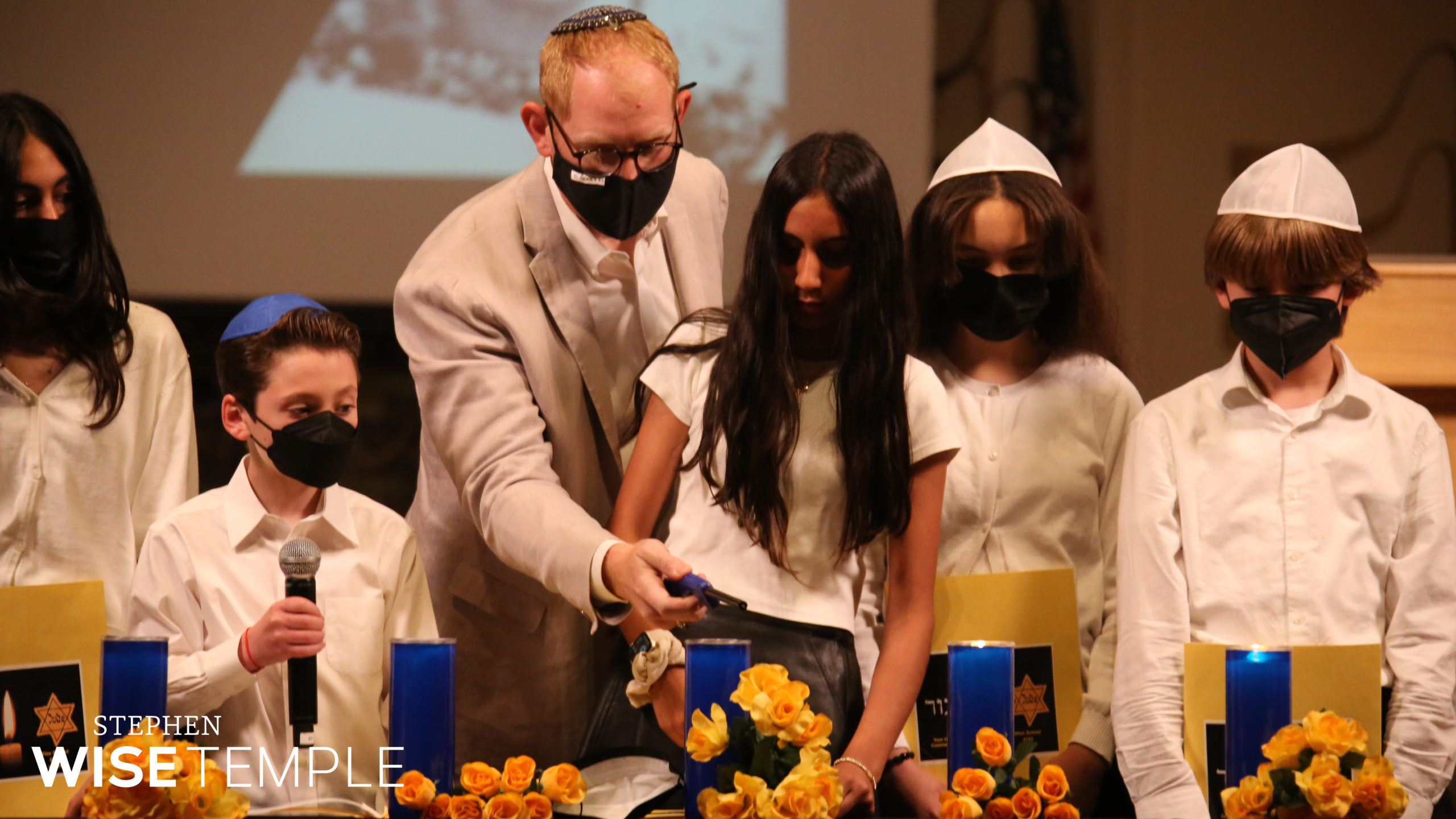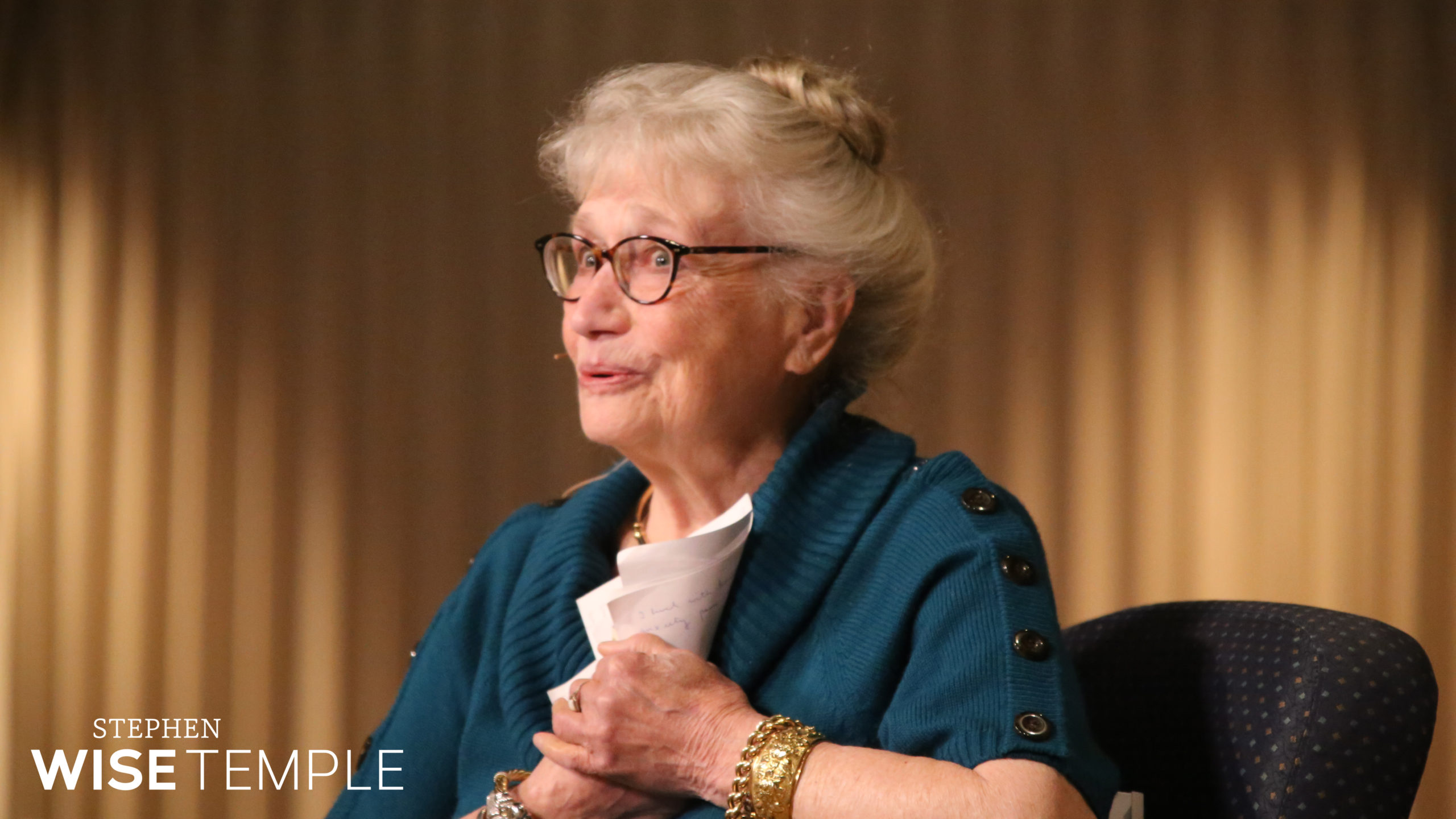
Holocaust survivor Trudie Strobel gingerly walked down the bimah, eyes shining as she looked at seven Wise School students. On Thursday morning, they each had lit a candle during a special service marking Yom HaShoah at Stephen Wise Temple.
One—Adam S.—had told the story of his great-grandmother, Sophie Zeidman Hamburger, who had survived a death march from Auschwitz. Strobel— who told her story to Wise School fifth and sixth graders in a special assembly that followed—found him soon afterward. She listened intently as Adam told her more of his great-grandmother’s story. Strobel smiled, and stretched out her arms. The two embraced.
Strobel spoke for 40 minutes in the Stephen Wise Temple main sanctuary Thursday morning, recalling the horrors of the cattle cars, the nightmares of the ghettos, and the terrors she encountered as a young girl. Wise School fifth and sixth graders—likely among the last generation to hear from Holocaust survivors in person—listened intently with their parents, alongside teachers and clergy.
 Rebecca Cohen, a Wise School parent, embraced Strobel at the end of the presentation, tearfully thanking the 84-year-old Ukrainian immigrant for her inspirational story. She then quickly went online on her phone and ordered Strobel’s book, “Stitched & Sewn: The Life-Saving Art of Holocaust Survivor Trudie Strobel.” The story the book tells—of how embroidery helped save Strobel from the depths of her trauma—will now be a part of every classroom library at Wise School, ensuring that future Wise School students can learn from her experience.
Rebecca Cohen, a Wise School parent, embraced Strobel at the end of the presentation, tearfully thanking the 84-year-old Ukrainian immigrant for her inspirational story. She then quickly went online on her phone and ordered Strobel’s book, “Stitched & Sewn: The Life-Saving Art of Holocaust Survivor Trudie Strobel.” The story the book tells—of how embroidery helped save Strobel from the depths of her trauma—will now be a part of every classroom library at Wise School, ensuring that future Wise School students can learn from her experience.
“You made an impact on us,” Wise School Head of Judaic Studies Malka Clement told Strobel. “You stay with us in our hearts.”
As part of the service, Senior Rabbi Yoshi Zweiback shared a teaching from Rabbi Israel Meir Lau from this year’s March of the Living, a teaching centered on Amalek.
A descendant of Esau, Amalek and his people came to symbolize pure evil in Jewish tradition because they took advantage of the vulnerable, attacking the refugee Israelites newly escaped from slavery in Egypt. The Torah commands the Jewish people to eradicate Amalek’s name from history, but it also warns that we will be at war with Amalek “from generation to generation.” The sages understood that to mean that we would be at war with evil forever. Rabbi Lau had a different interpretation: “From generation to generation,” is a hint from the Torah about how we can be victorious against evil and wickedness—by passing on the values of Torah “from generation to generation.” That, Rabbi Lau said, is how we vanquish evil.
On a table in front of the bimah, where Cantor Emma Lutz sang, where Rabbi Yoshi spoke, where Strobel told her story, flickered seven candles. Six were wreathed with flowers, representing the six million murdered in the Holocaust. One candle, unadorned with flowers, represented hope—fragile, delicate, persistent hope.
As Adam and Strobel embraced, they embodied that hope. In passing on what we have learned and what we value—welcoming the stranger, aiding the less fortunate, helping to complete creation together—we pass on hope, and with it, the key to fighting evil in every generation.

